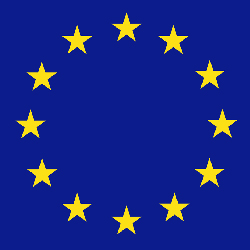Investment Strategies
Pictet Raises Exposure To Eurozone Equities, Keeps Faith With Japan

Improved prospects for eurozone equities have, the Swiss firm says, encouraged it to increase exposure to this asset class.
Pictet Asset Management, part of the Swiss private banking group Pictet, has increased its bullish positioning on eurozone equities by arguing that the attractions of these assets have increased because of measures to keep Greece in the single currency bloc.
The firm retains overweight positions on Japanese and European stocks, and has become more overweight of the latter, it said in a note yesterday.
“The allure of European stocks has increased now that Greece and its creditors are progressing towards a new bailout deal that should keep the country in the eurozone. As the uncertainty surrounding Athens has lifted, a more positive light is shining on the region while valuations have become more reasonable following the correction of the past few months,” Luca Paolini, chief strategist at Pictet Asset Management, said.
“Economic growth is resilient, led by a recovery in debt-laden countries such as Spain and Italy, which has made up for economic weakness in Germany. This is supporting corporate earnings in the eurozone. Earnings are expected to grow 7.7 per cent this year but our models suggest they could accelerate even further,” he continued.
“Much of the recovery has been attributable to strong household spending, reflecting improved consumer confidence. Business spending growth remains muted but the European Central Bank’s latest bank lending survey is encouraging with reports that credit standards on loans to companies have continued to ease, and that a net 13 per cent of banks reported an increase in demand for corporate loans up from 1 per cent in the previous quarter,” Paolini said.
Pictet is not unique in taking such an approach. In the Bank of America Merrill Lynch poll of investors for July, it noted that in spite of higher risk aversion, equity allocations were overall unaffected and appetite to overweight European stocks picked up. (That poll was based on responses from respondents together managing $510 billion of assets.)
While Greece’s potential to hurt the eurozone might have become less severe in some eyes, its plight remains severe. The National Institute of Economic and Social Research said this week that restoring debt sustainability in Greece “requires a debt write-off equivalent to at least 55 per cent of GDP, higher than the IMF's estimate of 30 per cent”. It said the Greek economy is expected to contract sharply again this year and next, with GDP falling 3 per cent in 2015 and 2.3 per cent in 2016. “We expect the recession to end in mid-2016. At this point the economy will be more than 30 per cent smaller than at its peak in 2007 and smaller than when it joined the euro area in 2001,” it said.
However, across the eurozone more broadly, there are signs that the loose monetary policy of the European Central Bank is paying off, Paolini said, citing the firm’s proprietary monetary conditions indicator which show that credit conditions in the eurozone are at their most stimulative in at least 20 years.
Japan
Overall, despite some ambiguous messages, the case for staying
overweight Japanese stocks remains, he said.
“Signals have become more mixed for the short-term trajectory of Japanese stocks. The impact of the Bank of Japan’s liquidity injections seems to be fading, and exports are losing momentum. However, favourable structural trends continue to paint a positive long-term outlook for Japanese corporate earnings. The reform policies of Prime Minister Shinzo Abe, aimed at improving corporate governance and encouraging shareholder-friendly behaviour, have the potential to raise the country’s return on equity,” he said.
The slowdown in China has, however, led Pictet to cut exposure to Asia ex-Japan equities to underweight, Paolini said.
And Paolini said that while emerging markets are attractively priced, a fall in earnings growth – which has led Pictet to cut its stance to underweight – remains “a concern”, he said, adding: “A likely rate hike in September or October from the US also raises the prospect of heightened volatility for emerging stocks.”
Sovereign debt
“With worries about the future of the Chinese and Greek economies
having inspired a rally in government bonds in recent weeks, we
have decided to scale back our exposure to European sovereign
debt from overweight to neutral on valuation grounds. The move
has been accompanied by an upgrade of European high-yield bonds
to neutral,” he said.
“We also retain our overweight position in US dollar emerging market debt,” he added.